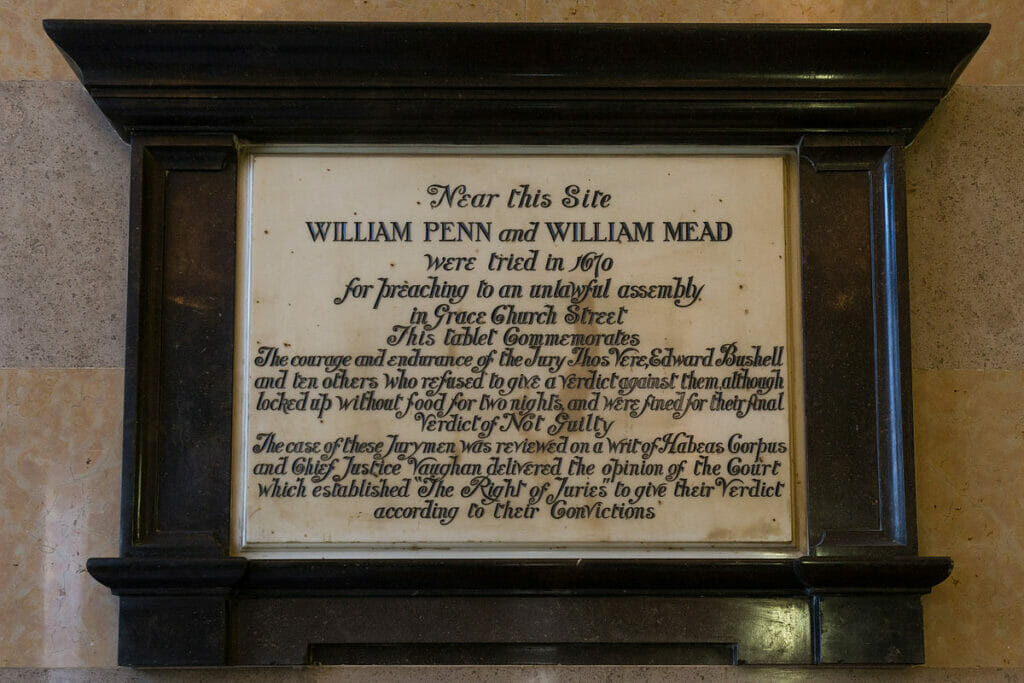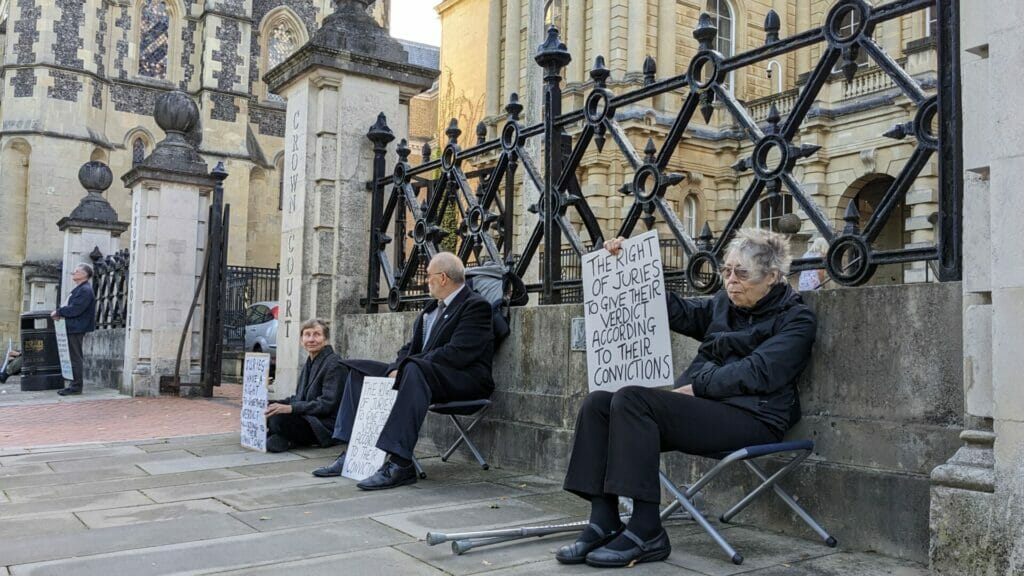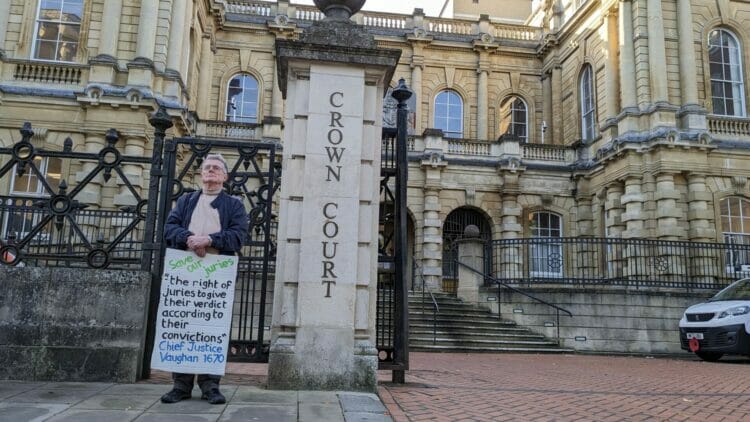TODAY, Monday, September 25, activists in Reading joined many around the country in staging a silent vigil at Reading Crown Court following the prosecution of Trudi Warner and a number of other protesters.
Protesters stood outside the court in central Reading holding signs citing a centuries-old ruling which codifies the right of a jury to go against a judge’s ruling into law.
It’s part of a wider campaign called Defend Our Juries, which argues that judges in British courts are “denying both defendants and jurors their rights by limiting what jurors are allowed to hear.”
They join similar vigils today including those in London, Bristol, and Manchester, all using similar methods.
The campaign follows the sentencing of three Insulate Britain activists for breaching a court ruling that stated that they were not allowed to mention the climate crisis as their motivation while on trial as a result of taking part in climate protests.
It also comes after the prosecution of Trudi Warner, who was found in contempt of court for sitting outside the trial of the three activists at Inner London Crown Court holding up a protest sign.
The sign read: “Jurors: you have an absolute right to acquit a defendant according to your conscience.”
Attendees in Reading are risking prosecution themselves by holding up signs with the same message.
Police are also separately investigating at least 12 other people for holding up similar signs outside courts in London.
Amy Pritchard and Giovanna Lewis were both given jail sentences after they ignored a judge’s ruling not to mention climate change while addressing the jury in their own trial, and are appealing against convictions for contempt of court.
The signs used in the vigil refer to a legal precedent set in 1670 that codifies the right of the jury to uphold their own verdict when it is not approved of or recommended by the judge in a trial.
A ‘perverse’ verdict, where a jury gives a not guilty verdict regardless of whether they believe a defendant has broken the law, has been part of British law since then.
The right to deliver this type of verdict, sometimes called jury nullification, allows a jury to act on the belief that the law may have been misapplied in a case, that a punishment for a given crime might be too harsh, or even that the relevant laws in a case are themselves unjust.
While it is not an outright part of criminal procedure, it is the result of the fact that jurors cannot be punished for passing an “incorrect” verdict, as well as the inability to retry a defendant who has been acquitted in many jurisdictions.
A plaque was installed, and remains, at The Old Bailey in London, and is directly referenced by activists such as Trudi Warner, and those attending in Reading.

Lucy Harding, 78, explained: “This is a constitutional crisis- I shall be joining this initiative outside Reading Crown Court, showing by my action that I care about democracy, the right to continue demonstrating, and, if arrested, to explain my motive to the jurors.”

Issy, one of the organisers, said at the vigil: “We’re concerned about the rights of juries to make decisions according to the law.
“The law is that juries can reach decisions based on their own convictions in a long-established precedent.
“Juries do on occasions exercise their right to make a ‘perverse’ decision because of their own conscience and wider understandings of the issues in any particular case.”
She continued: “The jury system is vitally important: 12 people who live ordinary lives in our communities are able to review the information and decide for themselves whether a defendant should be found guilty or not.
“Because there are 12, they are far less likely to be subject to any undue influence in cases where there is a wider moral dimension to be considered.”
*Please note: this article previously referred to the attendees as members of Just Stop Oil. They are not associated with the activist group. This has now been amended.
























